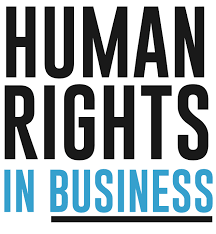 Guest post by Mary Mayenfisch-Tobin – So, with this part 6 (see links to parts 1-5 at end) you have come a long way to understanding how the world is operating and why respect for human rights is important, I hope. Let’s take a step backwards to try to understand even more clearly where we are and where we need to go.
Guest post by Mary Mayenfisch-Tobin – So, with this part 6 (see links to parts 1-5 at end) you have come a long way to understanding how the world is operating and why respect for human rights is important, I hope. Let’s take a step backwards to try to understand even more clearly where we are and where we need to go.
Government & Business as a force for good
Let’s be practical: governments and business can be and should be a force for good. But is this the case today? And if this is not the case what can be done about it? Going back to the beginning of our story let’s think again about the Universal Declaration of Human Rights, that famous document which sets out the rights that human beings have.
As the document was a declaration and not a binding legal document you will remember the two covenants that when signed and ratified by countries bind countries to certain obligations. The International Covenant on Civil and Political Rights (ICCPR) and the International Covenant on Economic, Social and Cultural Rights (ICESCR). In order for these covenants to be applicable in your country, the government must have signed and ratified those documents. Many countries, but not all, have done this and if this is the case, they are legally obliged to respect these conventions in their countries. Straightforward, right?
Well, not really. Many countries do not respect the laws of their own countries, let alone international conventions they have signed up to. That is why it is so important to have a government that is democratically elected and that respects their duties to respect the human rights of their people and that they ensure their business sector or those foreign corporations who do business in their country respect the national law too. Corruption, we have already seen, is a worldwide problem, and governments need to ensure they are not part of this global problem.
International Conventions and their application
Coming back to the conventions, the ICCPR and ICSECR, monitoring groups are in place to ensure the obligations signed up to by countries are respected. The monitoring group of the ICESCR, the Commission on Economic, Social and Cultural Rights (CESCR) recently published their General Comments document which sets out very clearly what the obligations of governments in relation to their business sectors are.
Governments have now received clear instructions on how they should deal with issues that have caused great problems everywhere. Questions of taxes, responsibility of governments to help businesses, both large and small and medium sized companies, to understand their duties with respect to issues like human rights and global supply chains are clearly set out in this document.
The need to ensure that everyone has fair access to justice if their human rights are violated is indisputable. Here are links to two articles I wrote about this, the second one was co-authored with Gabriela Quijano, legal advisor, Business and Human Rights, Amnesty International. I assure you the message to governments with regards to their responsibility where human rights are concerned is crystal clear!
A Clear Roadmap for the Way Forward – National Action Plans
As a result of John Ruggie’s work, many governments are working on their National Action Plans on Business and Human Rights. All governments now have a clear road map on what they need to do based on the CESCR General Comments. Business must also decide what a sustainable future looks like for them. Is it reasonable to continue to work for shareholder value only? Can the world as we know it continue to exist if there is no equality? Can the business sector thrive in a conflicted world with limited resources?
WHAT CAN I DO?
Having read Human Rights & Business part 6 you may wonder what can I do? Here are some suggestions:
- Have a look at your country’s National Action Plan on Business and Human Rights
- Visit this website so you can see how well your country is doing in terms of the Sustainable development goals
- Organise a debate in your school, community center or corporate headquarters on the “Duty of Government” at home and abroad
- Look at the website of local companies to see if they work on global supply chains and related human rights issues
- Find out how the tax system works in your country
- How does the government structure work in your country? Explain it to your class or professional colleagues
- Ask others what they feel about the government and their duties, not only internally but externally
- Organise a quiz on Human Rights (and Business)
- See these interesting links: UN Office of High Commissioner for Human Rights (OHCHR); OHCHR Facebook page
Do you have some other suggestions? Share them in comments below.
Links to previous Human Rights (and Business) for Beginners: The Story of Human Rights and Business for Beginners Part 1 | The Story of Human Rights and Business for Beginners Part 2 | The Story of Human Rights and Business for Beginners Part 3 | The Story of Human Rights and Business for Beginners Part 4 | The Story of Human Rights and Business for Beginners Part 5
—————–
Mary Mayenfisch-Tobin is an advisor on business and human rights who teaches at evolutio.conseil, is President of Centre de Liaison des Associations Féminine Vaudoise CLAFV, and contributes to the Platform for Business and Human Rights at University of Lausanne UNIL. These articles were originally published on her blog, Reconnecting with commonsense.

